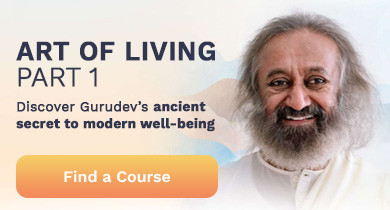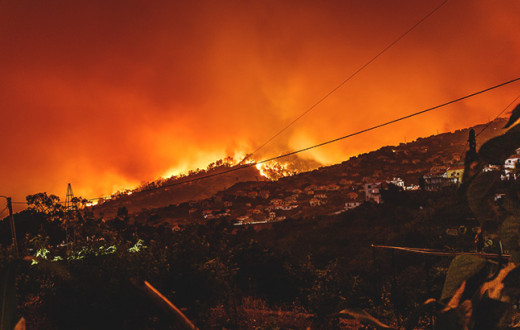By Anuradha Gupta | Posted: January 13, 2020
In the past few weeks, we have seen heartrending pictures come out of Australia—bushfires, animals fleeing and dying, people camping on the beach—and many of us have felt powerless to help.
The term “butterfly effect” refers to the interconnectedness of the world. In other words, a butterfly flapping its wings in China could cause a hurricane on the other side of the world. The fact is that we indeed are connected, and all of us feel the heat when Australia burns.
Paradoxically, as we talk about climate change and butterflies, I’m reminded that 20 species of butterflies and moths are endangered in the US…and a sense of hopelessness grips me. Even the monarch butterfly is one out of 1 million species struggling for survival across the globe as we try to preserve our biodiversity.
According to Jonathon Patz, an environmentalist, climate change can be thought of a public health issue at a global level. Forest fires are often a natural occurrence, exacerbated by climate change, irresponsible human activities (80% of forest fires in the US are caused by humans), short-sighted land management, a lack of a concerted fire management program (not only are ecosystems lost to fires, some fire-adapted forest ecosystems are fire starved) and above all, a disregard for sustainability.
So what can we do when we feel powerless? As we’re surrounded by apocalyptic predictions, how can we use spirituality to turn our perspective, and our futures, around?
Examine our value system
What is the pursuit of a good life?
The answer to this question can surely include leaving a gentler carbon footprint and thinking about issues like conservation and renewable sources of energy… For me, a starting point was to calculate my carbon footprint and ask myself how I can walk more lightly and lovingly.
Reducing, reusing, and recycling are powerful tools for simplifying our lives! Even if we’re not minimalists but merely try to be more mindful of how and what we consume, that too can make a world of difference.
Do we really need so many clothes? Do we need to wash or dry so many clothes? Can we air dry them? Can we reduce air conditioning? Can we carpool? Can we walk or bicycle to places (a great healthy option), or use public transit? I had a friend who thought it was a big waste of time to ever use public transit, but I once had her and her daughter come with us on a bus ride. Besides being cheaper, she said it was the most fun time, looking out of the bus, de-stressing and just relaxing; now that’s a thought!
We can calculate and offset our emissions at climateneutralnow.org – it is unavoidable to fly and drive sometimes, but it takes just a few dollars (less than what we spend on a meal at a fancy restaurant) to offset our impact.
In the words of the founder of Art of Living, Gurudev Sri Sri Ravi Shankar, who champions the causes of sustainability, peace, happiness and empowerment, “Every year as World Environment Day approaches, a clamor for stricter green laws and regulations is heard across the globe. While laws are important, they are not enough to ensure environmental sustainability. We need to make care for the environment a part of our value system through
a. Sustainable traditions:
The attitude of treating nature as sacred needs to be revived in modern times. People also need to be educated in innovative ways to save water and use natural and chemical-free ways of farming...We need to attend to the human psyche, which is the root cause of pollution.
b. Balancing technology and development with spiritual values:
Ecological degradation need not be an inevitable by-product of technology and development.
c. Let’s revive traditional practices
We need to revive the attitudes and traditional practices that foster our connection with nature. People should be encouraged to have reverence for the planet, to revere trees and rivers as sacred, to treat people and animals as sacred.
What are our dietary inputs and purchase habits?
While we are absolutely heartbroken seeing animals die in forest fires, we recommend becoming vegetarian mainly because of the practical benefits that this would bring to the environment, a fact that nations like Germany and Sweden have incorporated in their Food Based Dietary Guidelines (FBDG). They now have sustainability-based recommendations on reducing meat consumption: Sweden actually recommends that citizens, ‘eat less and stay fit’; how wonderful is that?
Become vegetarian, eat organic, buy local and sustainable products... If everyone in the U.S. gave up meat and cheese just one day a week, it would be equivalent to not driving 91 billion miles, or taking 7.6 million cars off the road, according to the Environmental Working Group. While organic food does not have synthetic fertilizers, which makes it better for our health, another reason to switch to organic foods is that many crops are over-fertilized, releasing nitrous oxide: a greenhouse gas 298 times more potent than CO2.
Honor our interdependence with each other and connection with nature
We are part of nature and will return to nature when our lives are over. We honor natural rhythms in systems like Ayurveda, an ancient science and form of modern medicine in India, and traditional Chinese medicine. As part of our connection with nature, spending time in nature is a Rasayana, or rejuvenator in Ayurveda, and it is our connection with nature that makes us conscious of conservation.
Living with nature is living simply. Not only are we interdependent with our community and the beautiful biodiversity of this planet and all its resources, we are responsible for future generations; for all the children of this planet. In a 2017 WHO report, “Inheriting a sustainable world”, WHO asserted that children are particularly vulnerable to air pollution, hazardous chemicals, climate change, inadequate water, sanitation, and hygiene. More than 1 in 4 child deaths could be prevented by cleaning up the environment. Isn’t it amazing then that it has taken a 17 year old child, Greta Thunberg, Time’s Person of the Year in 2019, to start a climate movement that has swept the world? Well, our job is to encourage kids, follow their lead, and give them hope that every effort that they make, that we make, counts.
Be responsible
We need to vote, and vote responsibility; we have a duty as citizens of the world to keep our representatives, lawmakers, and leaders accountable.
Another part of taking responsibility is community preparedness – building sustainable communities. Awareness, mindfulness, and education are part of being responsible. Know how we can make an impact: from taking little steps like unplugging appliances to bigger things, like obtaining permits before working in forest lands or starting campfires; following parks and recreation guidelines; having a good outdoor code, something we even teach our young Scouts.
Volunteer…and Meditate!
When I first asked Michael Stipkala what he thought would help the environment, he asked me, in turn, “How does Gurudev, Sri Sri, stay engaged and concerned but doesn’t ever seem to despair?”
When we meditate, we are responsible, service minded, and dispassionate, but at the same time, connected and loving, and this makes us productive in our efforts. Also, as we take responsibility for change, nature supports us. With each one of us volunteering for the environment even a few hours in a year, with a few skills, with any resources we have, we can make a big change. Take the large-scale tree plantations done by Art of Living through Mission Green Earth, water management, rejuvenating rivers, zero budget chemical-free farming that is economically and organically sound: these are all projects initiated and run by volunteers.
In a public talk in Rome, Gurudev said, “How can you care about the environment when you don’t feel for it inside? You must feel that this is a part of me. Like I care for my body, I have a care for the environment. This attention towards the environment becomes spontaneous when we release the stress from our daily activities.” Indeed, when we change ourselves, from that state of peace and happiness, we can change the world. And more than ever before, like Atlas, we carry this responsibility for the planet on our shoulders. Even something like line drying our clothes today counts towards that effort.
Join this webinar and learn how to transform your stress into ease using simple, powerful tools
With Inputs from Michael Stipkala, Art of Living Youth teacher, Artist and Director of Supported Education at Baltic Street AEH, Inc. who was an Event co-organizer of North American Day for Sustainable Communities, that Art of Living’s Nationwide Happiness Program with Sri Sri, Sept 2019 and Project Oasis participated in.
Anuradha Gupta is an Engineer, MBA and Ayurvedic Wellness Counselor. She has a corporate background and volunteers for Art of Living and other nonprofits. You can find her on Facebook or on LinkedIn.



















